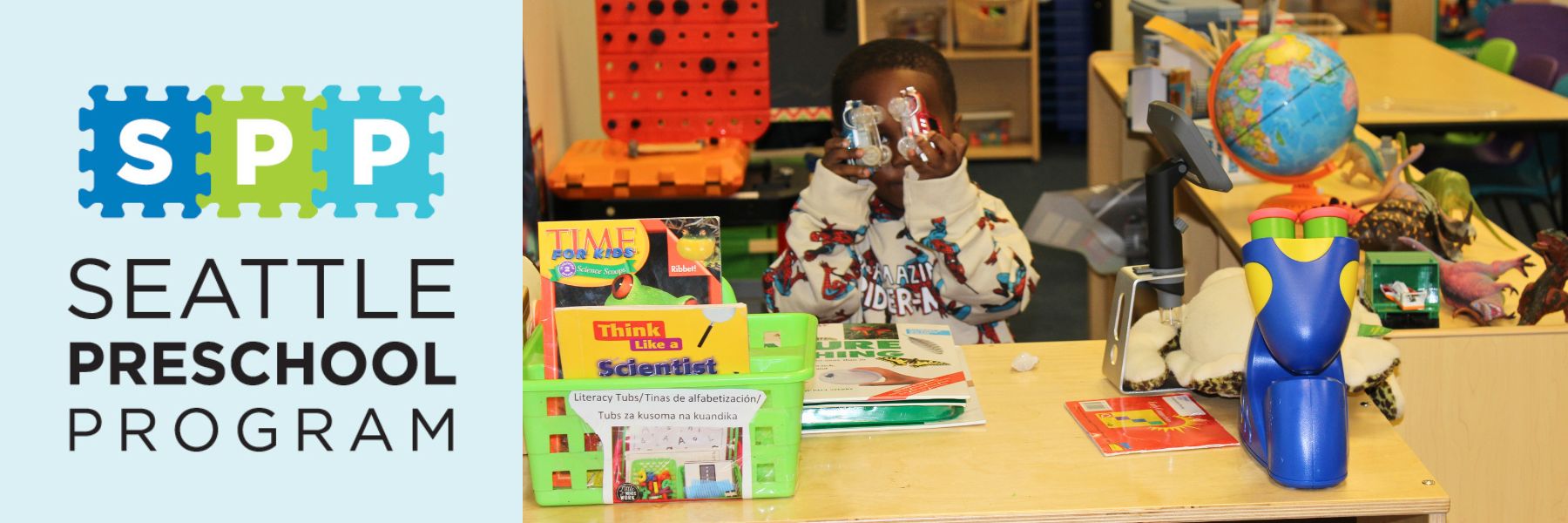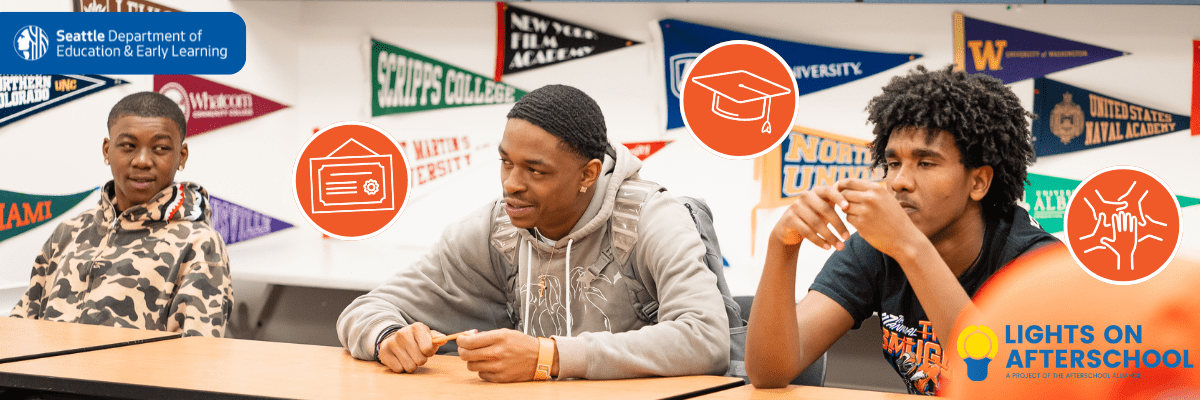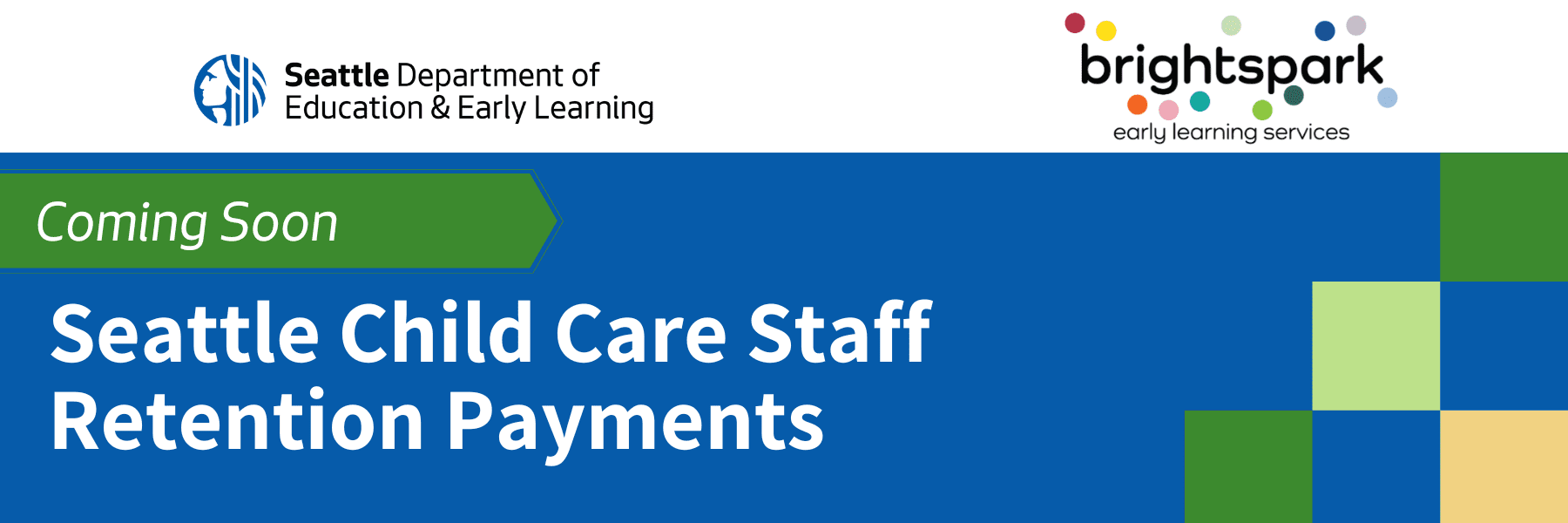By Erica Johnson, PhD
Manager of Early Learning Policy and Innovation, Seattle Department of Education and Early Learning
I can still remember the children in my first kindergarten classroom. It was August 2001—my first year of teaching—and I was as nervous as they were. On the first day, I welcomed them at the door and helped new families navigate their day one nerves. After helping these new kindergartners find their cubbies and seats, I watched as parents—some teary-eyed, some stoic—said their goodbyes.
That day, there were 26 kids. Looking back, it’s remarkably easy to see who was socially and emotionally ready for kindergarten and who wasn’t quite there yet. It was only years later that I recognized that a child’s preparation had everything to do with what they did before kindergarten.
Sienna* and her twin brother, Angelo*, participated in a well-regarded local preschool program. Kindergarten was not a new challenge for them, it was just a new setting. Sienna walked into the room on the first day with confidence, inquired about her cubby and asked if she could use the materials at her table to draw a picture. Angelo was also confident but less interested in table work. His biggest concern was when recess would start and if I had a soccer ball (I did).
Mariella* was a heritage-language speaker with limited exposure to English. Academically, she was ready for Kindergarten, but she struggled socially and emotionally. In the beginning of the year, she cried every day when her mom left. Mariella had not been in a formal preschool program before kindergarten which made acclimating to school environment a challenge. Even though more than half of the children in the class spoke Spanish, there were no school-level resources to support her transition to kindergarten which likely compounded her separation anxiety. I believe her kindergarten transition experience was more difficult than it needed to be.
Kevin* and Keeley* spent the beginning of the year a bit lost. They had not participated in preschool so everything was new to them. Letters, reading and math concepts, and navigating peer relationships were all new. I remember that Kevin would identify every letter was a K, since that was the first letter of his name. Sweet and quiet, Keeley would shut down when she got confused or overwhelmed. They made progress throughout the year, but basic reading readiness activities were too advanced for what they needed. Due to State requirements around reading (in Florida, in 2001), they were both required to repeat Kindergarten the next year.
I imagine what that year would have been like for Mariella if she had been in a dual language preschool that eased her into English while providing linguistically- and culturally-appropriate support. What would that year have been like for Kevin and Keeley if they had access to peers for social development and pre-academic experiences through high-quality preschool? How would Kindergarten have been different for these kids? How would school have been different?
Fast-forward to 2018 and I now work for the City of Seattle to help develop and expand the Seattle Preschool Program. I know the research. I know that in the 2017-18 school year, 64.1% of children in Seattle Public Schools kindergarten classes were determined to be ready for kindergarten in assessments of social-emotional, physical, language, cognitive, literacy, and math. That means that almost 36% of kids were not ready in one or more area.
Within that 36%, we see pervasive racial and socioeconomic inequities. Children identified as middle or high income and White are more likely to be found to be ready in all areas than those identified as children of color, low-income, or limited English proficient. From research and from experience, we know that access to affordable, high-quality preschool can make a difference for our children and help close the opportunity gap.
It’s easy to talk about the research, but to feel the difference preschool makes, I have to think back to Sienna, Angelo, Mariella, Kevin, Keeley, and all of their classmates. Each of these kids—and all kids—deserve the best “day one” of kindergarten the community can give them.
*all names of these young learners were changed
Postscript: Mariella, a beneficiary of the Dream Act and an opportunity scholarship, graduated from a state university with honors. I still wish her kindergarten experience had been easier for her but am endlessly proud of her accomplishments and can’t wait to see what happens next.


